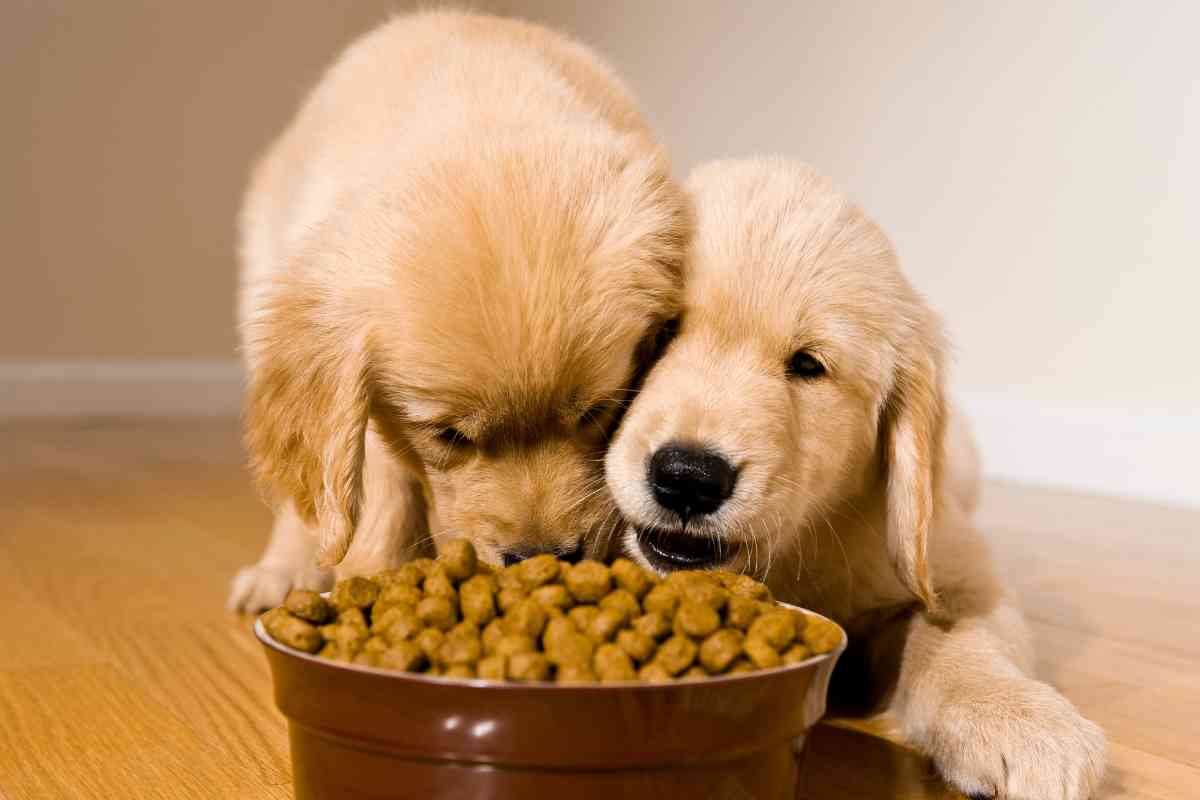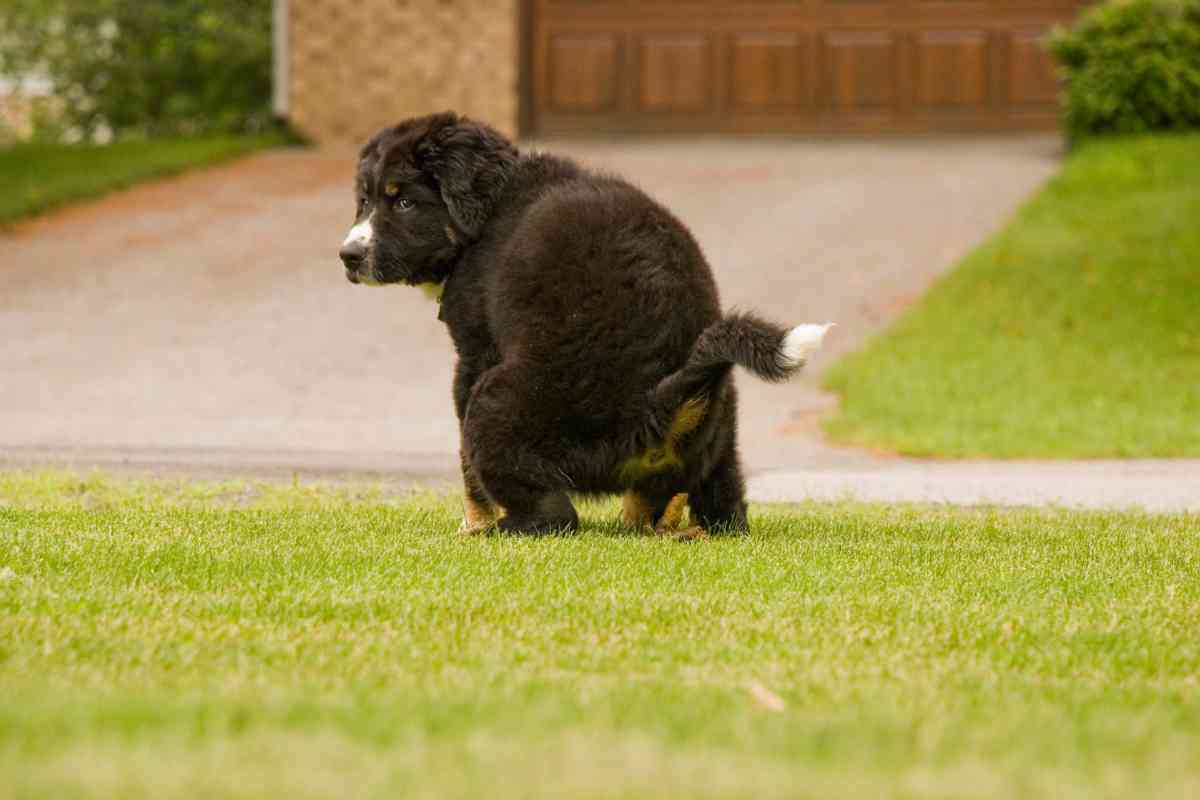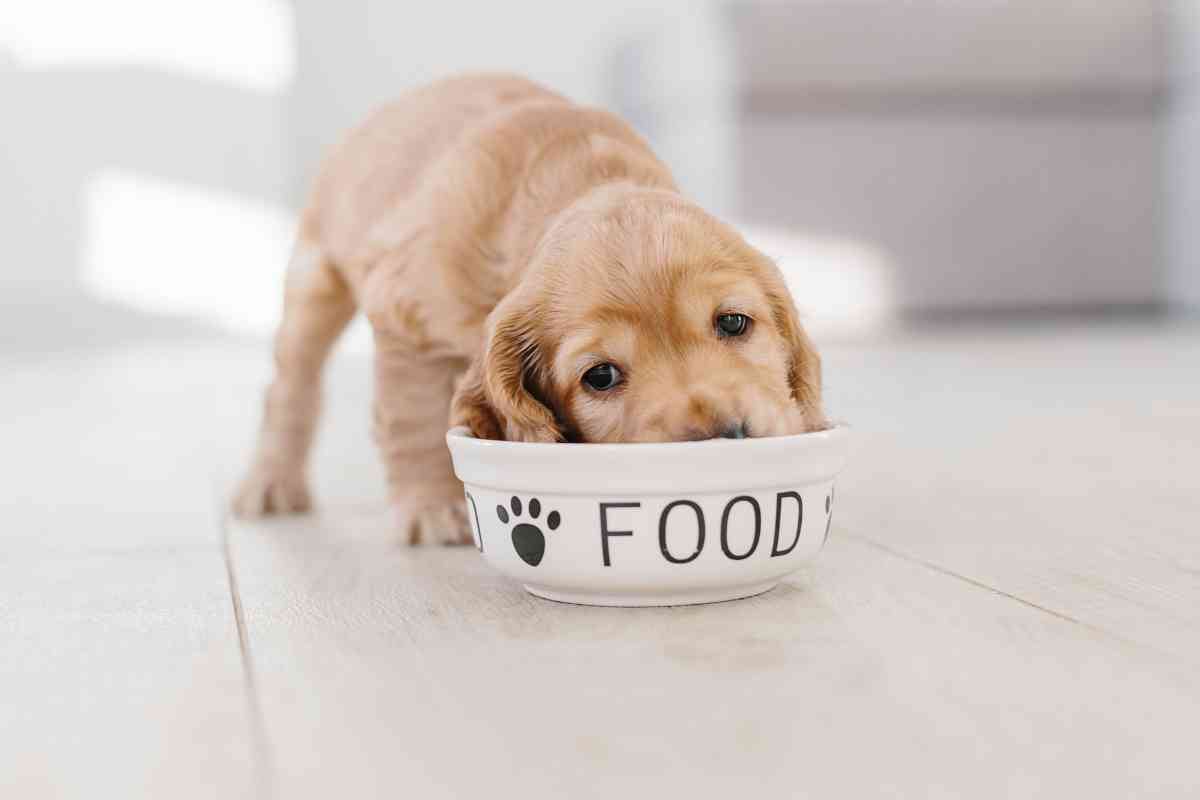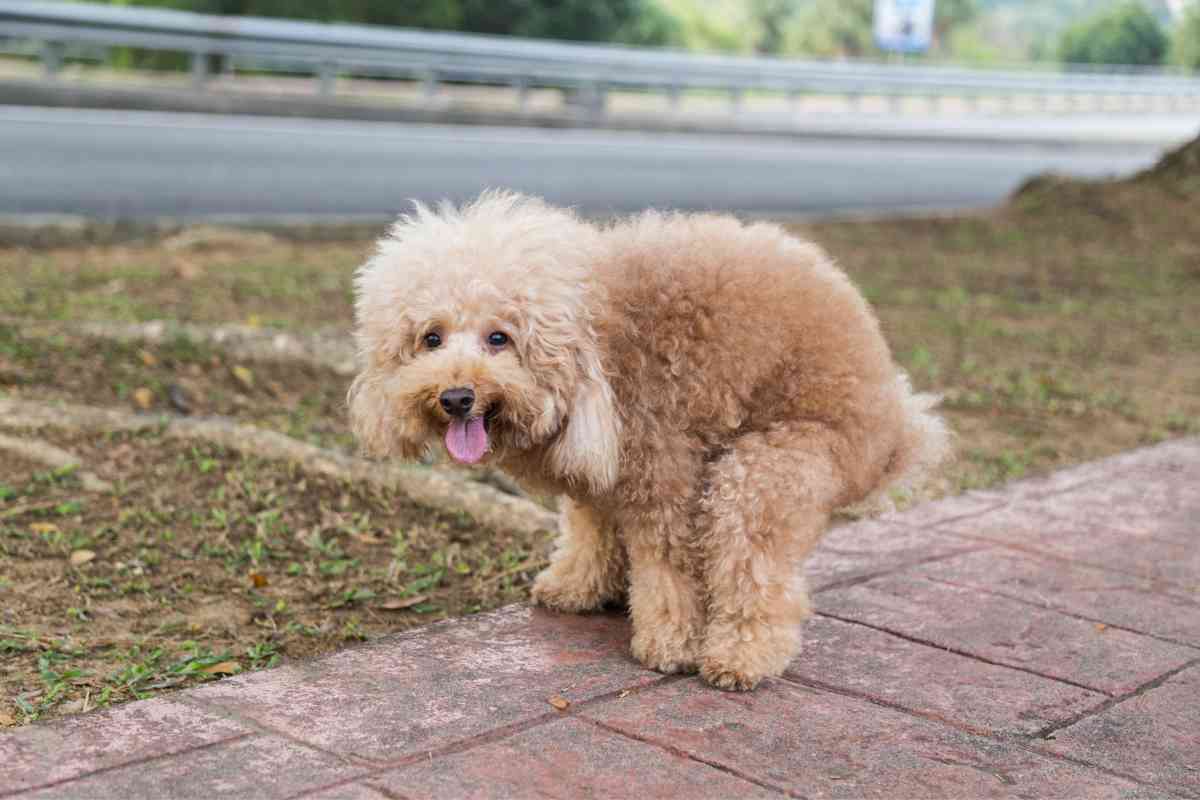Here’s How Long You Have To Get Your Puppy Outside To Poop After Eating
Puppies have to go out more often than adult dogs, sometimes five times a day. How long after eating do puppies poop?

How long after eating do puppies poop?
Puppies usually have to poop shortly after eating. They often have to poop after thirty minutes, and it might only take five minutes. It depends on the puppy’s age, size, fluid intake, diet, and health.
I have raised a couple of dogs from puppyhood before and puppies usually have to go shortly after they eat. If they don’t have to go, that may mean the dog is constipated.
Puppies have to be taken out often. You will have to take them out several times a day until they grow up. Even six-month-old puppies may still have to poop often.
Puppies Should Need to Poop Shortly After Eating
It is normal and healthy for a puppy to have to go out after you feed it. If the puppy doesn’t need to go, that might be a bad sign. Your dog might be constipated.
What Makes a Puppy Poop More Often?
How often a puppy has to poop depends on what it eats, what it drinks, its health, and its age of the puppy. Wheat leads to poor digestion and overly frequent bowel movements in young puppies.
A young puppy has a sensitive digestive tract, so it may have trouble with foods that an adult dog can eat. Corn is also not digestible for puppies before a certain age.

Puppy Hydration
Dehydration can lead to digestive problems or constipation. Make sure your dog always has clean water to drink. You might put water bowls in more than one room in your home to encourage the dog to drink.
Dehydration can also lead to:
- Loss of skin elasticity
- Dry nose
- Thick saliva
- Panting
- No appetite
- More serious problems if the dehydration persists
How Does Adequate Water Keep Dogs Healthy?
Every part of your dog’s body uses water in one way or another. A dog uses water to moisturize the air it breathes, move nutrients to the cells, and transport oxygen through the body.
Your dog’s brain, nervous system, and digestive system all require water to function. If your dog isn’t getting enough water, it can easily become constipated.
Constipation in Puppies
When a puppy is constipated, it may defecate infrequently, pass very hard stools, or have difficulty defecating. If you notice your dog straining to poop, it is constipated.
Poop dries up if it remains in the dog’s colon for too long. Dried poop is difficult or painful for the dog to eliminate.
Chronic Constipation Can Be Harmful
Your dog might be harmed if it remains constipated for a long time. If bowel movements are very infrequent for too long, there will be inflammation of the intestinal lining. The dog may release dark fluid when defecating if its intestinal lining is inflamed.
Causes of Constipation
Sometimes, a dog will eat something that it can’t digest. Puppies often eat something that is not food. They might eat sand, paper, cloth, or grass.
Anything non-digestible the dog eats can make its feces too hard to pass through the colon. At worst, a swallowed object could injure the dog.
Diet Matters

Like humans, dogs might become constipated if they eat a low-fiber diet. Without fiber, your puppy may have dense and sticky stools that it strains to pass.
High-quality dog food usually contains enough fiber plus the protein and nutrients your dog needs. If your dog is constipated on and off, try improving its diet or supplementing with high-fiber treats.
Higher-quality dog food is more expensive, but it will keep your dog healthy. Cheap dog food might lead to health problems that are expensive to treat.
Can Stress Cause Constipation in Puppies?
Yes, stress can affect a puppy’s physical health, including causing constipation or diarrhea. When a puppy is in an unfamiliar place, it may avoid pooping until it becomes constipated. The dog might not eat or drink enough in an unfamiliar situation, which will worsen the problem.
Dogs should learn to be around strangers early in their lives. They should learn to poop while walking with a stranger and not only with a familiar person.
Constipation From Swallowing Fur
If you don’t take your dog to the groomer often enough, it may groom itself. This can include swallowing fur, which may lead to constipation. Ungroomed hair around the anus can also lead to inflammation and difficulty defecating.
Veterinary Treatment
After two days without defecating, take your puppy to the vet. Call the vet if your dog tries to defecate but can’t or finds it difficult.
Your vet may give your dog a suppository or an enema. The puppy might have to be sedated for this procedure.
Constipation might make your dog behave badly. It might get angry at you because it is in pain.
Treatment At Home

You can treat your dog at home with food and liquids. Your dog might not drink enough even if clean water is available. Try encouraging your dog to drink water more often.
Food that contains a lot of fiber (13% or at least 7%) may help your dog.
How much fiber dog food has is usually printed on the bag or listed online. Increased exercise can also help your dog.
Fiber Snacks and Supplements
Canned pumpkin is a high-fiber food a dog will eat. You can also try fiber supplements. A dog might also eat carrots or celery.
Key Takeaways
- Your puppy should usually need to poop around 30 minutes after eating, and it could be five minutes.
- If your puppy doesn’t poop shortly after eating, it might be constipated. If you see your dog straining to defecate, take it to the vet.
- High-fiber food can help a constipated dog. Give your dog food with 7 to 13 percent fiber in it.
- Make sure your dog drinks enough water, as dehydration causes constipation.
- If your dog eats something it shouldn’t, such as sand, that may cause constipation.